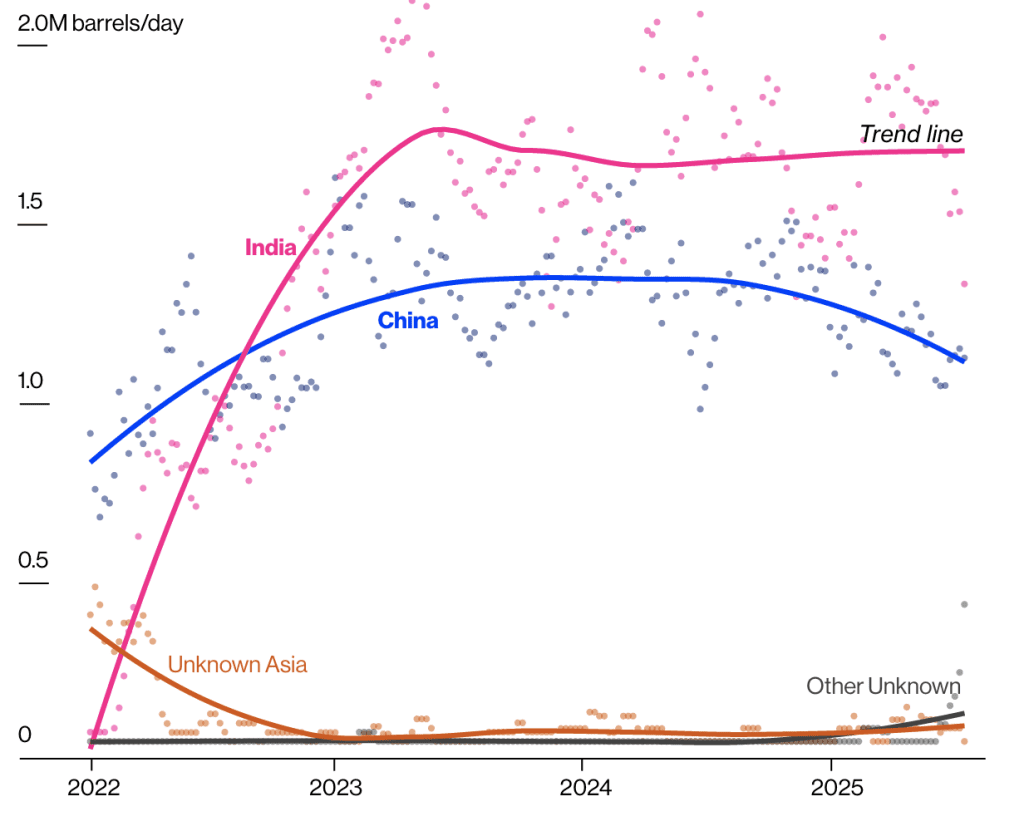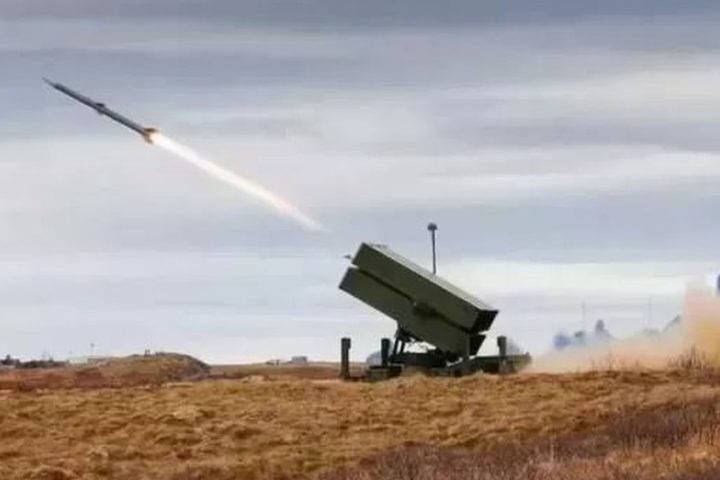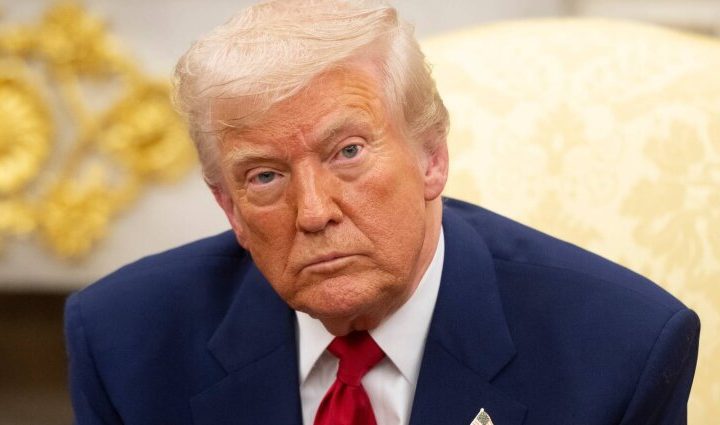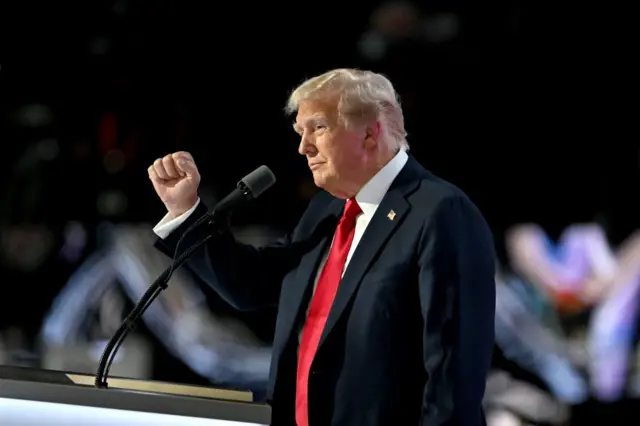The United States has proposed that its G7 allies impose tough tariffs on purchases of Russian oil by India and China — up to 100%. According to Washington, such measures should force Vladimir Putin to end the war against Ukraine.
US President Donald Trump said on Friday that his patience with the Russian leader was “running out fast” and warned of new economic restrictions. “This will hit banks hard, oil hard, and tariffs hard,” he said.
According to the document, which Bloomberg has seen, the American initiative also involves creating a mechanism for seizing frozen Russian assets — we are talking about $300 billion, most of which are in Europe. These funds could be used to finance Ukraine’s defense.
After the information was published, the price of Brent oil renewed its daily maximum, and the euro weakened to $1.1703.
India is a key buyer Russian oil
Transportation reports show that Indian oil purchases have increased since Russia invaded Ukraine. India has become one of the largest buyers of Russian energy in Asia.
At the same time, the White House is discussing with European allies the option of gradually withdrawing frozen assets to increase pressure on Moscow and push it to negotiate.
Canada, which holds the G7 presidency, has called a meeting of finance ministers to discuss “additional measures to weaken Russia’s military power.”

Russian Oil and Political Divisiveness
However, it will be difficult to assemble a united front in Europe: a number of EU countries, including Hungary, oppose tough energy restrictions. Any new measures would require the consent of all members of the bloc.
Trump has warned European leaders that the United States is ready to impose tariffs on India and China if Europe follows suit. Otherwise, according to the president, the American steps will be limited.
The US proposal also includes measures against the “shadow fleet” of Russian tankers, intermediary companies and Rosneft, as well as a ban on marine insurance. It also proposes restrictions on regional Russian banks and organizations supporting the defense industry, as well as a ban on the use of Western IT and AI services in Russian special economic zones.
Despite his tough rhetoric, Trump has so far avoided imposing direct sanctions on Russia. But now, amid intensified bombing of Ukraine and the failure of his peace talks, the US president has signaled that he is ready for much more decisive action.
Remind, Oil prices rose again on Tuesday, building on recent gains as markets reacted to tight supply, steady Chinese demand, and ongoing geopolitical tensions.
















